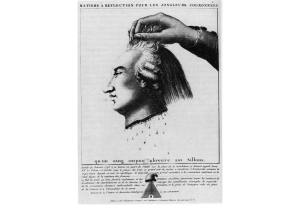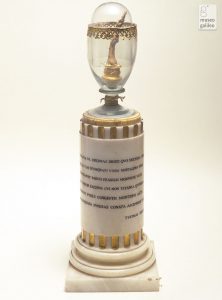
Walter Benjamin offered that “There is no document of civilization that is not at the very same time a document of barbarism.” Writing in 1940 and in Paris, where the German-Jewish writer had fled the Nazis, Benjamin had good reason to see the dark side of civilization. I read this line over the weekend in an otherwise forgettable bit of journalism and it set me to thinking about the kinds of documents we’ve considered in the class and the kinds of complexity we’ve seen in them.
There is something powerful to ponder here. To what degree is civilization bound up in barbarism, or shall we say, more generally, in oppression? How much of this dynamic can we see in the topics we’ve discussed and the documents we’ve held in our hands? Religious reform and renewal often led to the intensification of intolerance. The Declaration of Rights of Man and Citizen gave way to the arbitrary and summary justice of the Terror. The industrial revolution produced enormous wealth and enormous deprivation.
Well, we don’t have to see everything in black and white terms. It is not as if every movement in history has an equal does of civilization and barbarism. We’d like to add a whole lot of gray to the picture. The key here is to understand that this history is more complicated – our documents are more complicated – that we may sometimes make them out to be.

 If you find yourself studying abroad in Tuscany in the near future, be sure to wander through the renovated (and newly named)
If you find yourself studying abroad in Tuscany in the near future, be sure to wander through the renovated (and newly named)